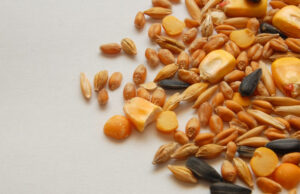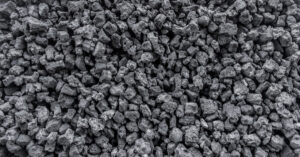
Bulgaria has authorized licensed imports of Ukrainian sunflower, rapeseed, corn and wheat, according to the website of the Ministry of Agriculture and Food of Bulgaria.
According to the report, during an online meeting on Friday, the Ministers of Agriculture of Bulgaria and Ukraine Kirill Vatev and Nikolay Solsky agreed to implement a licensed export regime for sunflower, rapeseed, corn and wheat seeds and agreed on the details of its application.
“The Ministry of Agriculture and Food has kept its promise to limit imports of these agricultural products as much as possible until November 30, according to the Memorandum signed between the government and the Initiative Committee of Protesting Farmers,” the Bulgarian ministry quoted Minister Vatev as saying.
He emphasized that after this period, the two countries will “strictly monitor that there are no market distortions and that the interests of Bulgarian producers, processors and consumers are not undermined.”
Imports and data exchange between the two countries will continue, the Bulgarian ministry emphasized.
As reported, in November 2023, the Minister of Agrarian Policy of Ukraine Solsky expressed the opinion that Bulgaria, which refrained from imposing a unilateral ban after September 15, could become the first frontline country to lift the ban on Ukrainian agricultural products.
In his opinion, the crop that Bulgaria will be ready to import from Ukraine will be sunflower. In Bulgaria, in the fall of 2023, a compromise was reached between farmers and processors to open the market for imports of Ukrainian sunflower from December 1. By this time, local sunflower oil producers, according to the Bulgarian government, will have to buy back the sunflower seeds produced by farmers, and they will need an additional 1.5 million tons of raw materials.
Earlier, Stepan Kapshuk, head of the industry association Ukroliyaprom, told Interfax-Ukraine that Bulgaria has 16 oil extraction plants that have significantly increased production in the 2022 season and intend to develop sunflower oil exports using sunflower seeds imported from Ukraine.
On September 15, the European Commission announced that it would not extend the restrictions on imports of agricultural products from Ukraine to five neighboring EU countries (Poland, Bulgaria, Hungary, Romania, and Slovakia) under certain conditions that will help avoid a new sharp increase in supplies.
The restrictions were introduced on May 2, 2023, and applied to imports of wheat, rapeseed, sunflower, and corn. These five Eastern European EU member states argued that Ukrainian agricultural products, when imported duty-free into the EU, were being deposited in their countries and were harming their local agricultural sectors.
After the restrictions were lifted, Poland, Hungary, and Slovakia imposed unilateral bans. Poland expanded its list of banned products to include rapeseed cake and meal, as well as corn bran, wheat flour, and derivatives. Hungary extended the list to 24 commodity items.
Ukraine filed a lawsuit with the WTO, accusing Poland, Hungary, and Slovakia of discriminatory treatment of its agricultural products.
Ukraine is currently negotiating a mechanism for licensing exports of Ukrainian agricultural products with mandatory verification in each of the five countries.

The Cabinet of Ministers has simplified the import of power equipment, including generators and transformers, to Ukraine, Prime Minister Denys Shmyhal said.
“We are preparing for winter at all levels. Today we will approve a resolution that simplifies the import of power equipment, in particular generators and transformers, to Ukraine,” Shmyhal said at a government meeting on Friday.
According to him, to do this, the government will actually suspend six technical regulations that were applied to the import and sale of energy equipment.
“Now, a number of these goods will not require a declaration of conformity and marking with a conformity mark,” he concluded.

The volume of imports to Ukraine in January-October 2023 amounted to $52.17 billion, which is 18.2%, or $8.03 billion, more than in the same period a year earlier.
At the same time, the volume of Ukrainian exports decreased by 19.1%, or $7.03 billion, to $29.83 billion, according to the website of the State Customs Service.
The negative balance for the first 10 months of this year amounted to $22.34 billion, which is 3.1 times more than in the same period last year.
According to the State Customs Service, exports of goods fell by 18.1% to $27.1 billion in the first nine months of the year, while imports increased by 18.9% to $46.6 billion, and the negative balance of trade in goods increased by 3.2 times to $19.5 billion.
It is specified that over the first 10 months of this year, imports from the EU increased by 23.5% to $26.71 billion, while exports decreased by 15.8% to $19.45 billion.
At the same time, imports from the CIS countries fell 4.2 times to $1.03 billion in January-October this year compared to the same period last year, while exports from Ukraine to these countries fell 36.4% to $1.33 billion, making trade with these countries surplus, whereas before the war it was traditionally deficit.
Finally, imports from other countries increased by 34% to $24.42 billion over 10 months of this year, while imports decreased by 22.4% to $9.04 billion.
“At the same time, taxable imports amounted to $43.4 billion, which is 83% of the total volume of imported goods. The tax burden per 1 kg of taxable imports in January-October 2023 amounted to $0.49 per kg, which is 44% more than in the same period in 2022,” the release said.
According to the State Customs Service, the countries from which Ukraine imported the most goods were: China – $8.4 billion ($6.6 billion in 10 months of 2022), Poland – $5.5 billion ($4.4 billion) and Germany – $4.1 billion ($3.7 billion).
Most of Ukraine’s goods were exported to Poland – $4.1 billion ($5.7 billion), Romania – $3.3 billion ($3.0 billion), and Turkey – $2.0 billion ($2.4 billion).
In January-October 2023, 65% of the total volume of imported goods was machinery, equipment and transport – $16 billion (UAH 115.2 billion, or 31% of customs revenues, was paid to the budget during customs clearance), chemical products – $9.3 billion (UAH 63.6 billion, or 17%), fuel and energy products – $8.7 billion (UAH 79.3 billion, or 21%).
It is specified that imports of machinery, equipment and transport increased by 30%, chemical products – by 17%, while fuel and energy products decreased by 18%.
The top three most exported goods from Ukraine are: food products – $17.7 billion (down 4%), metals and metal products – $3.3 billion (down 19%), machinery, equipment and transport – $2.5 billion (down 30%).
The State Customs Service added that UAH 500.7 million was paid to the budget during customs clearance of exports of goods subject to export duties.
The State Customs Service also reported that in 10 months of 2023, customs authorities detected violations of customs rules worth UAH 7.6 billion.

In January-October this year, Ukrainian companies increased imports of copper and copper products in value terms by 91.1% compared to the same period last year, to $104.029 million.
According to customs statistics released by the State Customs Service of Ukraine on Wednesday, exports of copper and copper products decreased by 20.6% to $61.107 million over the period.
In October, Ukraine imported copper worth $13.932 million and exported it for $6.090 million.
In addition, in 10 months of 2023, Ukraine reduced imports of nickel and products by 77.7% compared to the same period in 2022 to $12.438 million ($806 thousand in October), while imports of aluminum and aluminum products increased by 10.1% to $307.569 million ($32.582 million).
At the same time, it reduced imports of lead and lead products by 66.3% to $892 thousand ($19 thousand), imports of tin and tin products by 21.1% to $2.284 million ($232 thousand), but increased imports of zinc and zinc products by 23.1% to $37.525 million ($3.538 million).
Exports of aluminum and aluminum products in January-October this year decreased by 2.3% compared to the same period last year to $81.616 million (in October – $9.996 million), lead and lead products increased by 27.9% to $12.498 million ($1.308 million), nickel and nickel products amounted to $257 thousand ($1 thousand), while in 10 months of 2022 it was $1.086 million.
Zinc was exported abroad for $99 thousand over 10 months (in October – $10 thousand) against $1.321 million in January-October 2022. Exports of tin and tin products amounted to $57 thousand (no deliveries were made in October) against $421 thousand in 10 months of 2012.
As reported, in 2022, Ukrainian enterprises reduced imports of copper and copper products in value terms by 64.3% compared to the previous year – to $65.370 million, while their exports decreased by 56.3% to $90.245 million.
In addition, in 2022, Ukraine reduced imports of nickel and nickel products by 49.9% compared to 2021, to $59.754 million, and aluminum and aluminum products by 33.4%, to $340.398 million. At the same time, it reduced imports of lead and lead products by 66.6%, to $2.839 million.
Imports of tin and tin products fell by 33.5% to $3.312 million, and imports of zinc and zinc products decreased by 58.7% to $38.690 million.
In 2022, exports of aluminum and aluminum products decreased by 42.7% compared to 2021, to $96.972 million, lead and lead products – by 68.7%, to $11.970 million, and nickel and nickel products – by 73.9%, to $1.268 million.
Zinc exports in 2022 amounted to $1.331 million, while in 2021 they amounted to $550 thousand. Exports of tin and products in 2022 amounted to $424 thousand, compared to $346 thousand in the previous year.

In January-October this year, Ukraine reduced imports of coke and semi-coke in physical terms by 20% compared to the same period last year, to 268,550 thousand tons.
According to statistics released by the State Customs Service (SCS) on Wednesday, coke imports in monetary terms decreased by 36.7% to $105.546 million during this period.
Ukraine exported 3.324 thousand tons of coke in 10 months of 2023, down 10.1% year-on-year. In monetary terms, it decreased by 21.6% to $774 thousand.
Exports were carried out to Moldova (100% of supplies in monetary terms), while imports were mainly from Poland (87.60%), Colombia (9.48%) and the Czech Republic (2.12%).
As reported, in 2022, Ukraine reduced exports of coke and semi-coke in physical terms by 98% compared to the previous year – to 3,856 thousand tons, and in monetary terms by 97.6% – to $1,011 million. The main exports were made to Hungary (42.63% of supplies in monetary terms), Georgia (37.69%) and Turkey (17.41%).
In 2022, Ukraine imported 359.192 thousand tons of coke and semi-coke, which is 54.5% less than in 2021. In monetary terms, imports decreased by 50.3% to $174.499 million. Imports were carried out mainly from the Russian Federation (43.43% of supplies in monetary terms, before the war), Poland (30.07%) and the Czech Republic (13.15%).
As a result of the war, a number of mines and coke plants are located in the territories temporarily not controlled by Ukraine.

In October 2023, Ukraine imported 6.08 thousand tons of dairy products, which is 27.8% more than in September and 35% more than in October 2022, which is the highest figure since March 2022.
According to the Ukrainian Agribusiness Club (UCAB), growth is recorded in all categories of dairy products, but the largest imports are cheese – 3.2 thousand tons. In addition, in October, the volume of butter imports doubled, reaching 619 tons, which is the highest figure since November 2021.
“In total, 48.89 thousand tons of dairy products were imported in 10 months of 2023, which is 6.1% less than in the same period last year, but at the same time, the value is 11.3% higher ($210.2 million),” the UCAB emphasized.
According to the association’s analysts, the volume of dairy exports remained stable for the second month in a row – 8.25 thousand tons, which corresponds to the same period last year. However, in monetary terms, the revenue decreased by 19% to $226.94.
At the same time, UCAB experts noted the intensification of demand in the global dairy market after a nine-month decline in prices. This is confirmed by the FAO index for October and the increase in trading on the Global Dairy Trade: the average value of the FAO Dairy Price Index in October was 111.3 points, which is 2.4 points (2.2%) higher than in September, but still 28 points (20.1%) lower than in the same period last year.
“In October, world prices for milk powder increased the most, mainly due to a sharp increase in import demand under both short- and long-term contracts. An additional factor in the growth of prices for dairy products was the limited supply of milk in Western Europe and some uncertainty about the impact of weather conditions on production in Oceania,” explained UCAB analyst Maxim Hopka.
World butter prices rose under the influence of stronger retail prices before the start of the winter holidays in Western Europe and increased import demand from Northeast Asia. At the same time, cheese prices, on the contrary, slightly decreased due to the weakening of the euro against the US dollar and the growth of export supply from Oceania, UCAB summarized.